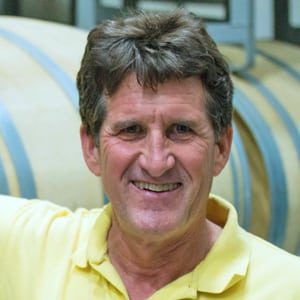
Home » Winemaker offers advice for choosing best wine for casual dinner party
Winemaker offers advice for choosing best wine for casual dinner party

March 14, 2018
By David Forsyth
OK, so here’s the challenge. I’ve got company visiting from out-of-town, California wine country to be exact, folks who know and are active in the wine industry. Which Washington wine should be served to showcase the true essence of Washington wine?

Do I distill the choice down to one white and one red, without being pretentious, and forego some obvious heavy-hitter of a variety or winery? Let’s consider the elements of the decision.
First premise is what makes Washington wine so amazing? The clarity of fruit, fresh acidity and the richness and structure are all wrapped up in a balanced wine from the beginning to end. Also complicating my decision is that if we have a problem in Washington state, it is not that we are limited to what varieties we can grow and wine we can make, but rather that a large number of varieties grow well here and produce unique and beautiful wines. There is such a diverse selection that we can’t agree on a signature variety for the state. But then again, why limit the industry and the wine lover by doing so?
First the whites. The obvious ones on the list are Sauvignon Blanc with grapefruit and mouth-watery acidity, or a Chardonnay, which may run the range from unoaked with unadulterated pear fruit to a full-throttle buttery oaked version. I love them all. One could certainly entertain Riesling, which lends itself to Washington’s cooler climate to produce dry Rieslings with white peach and tangerine to something a little riper with ripe apricot. Riesling is our house white at home.
No, I think I would go with something a bit more esoteric that has fallen by the wayside in modern wine culture.
The first to consider is Chenin Blanc. It is planted as a workhorse in warm regions of California at very high crop volumes to fill the need for white wine blends. Grown in the cooler climate of Washington, these grapes make beautiful and complex wines. Chenin Blanc, often made dry or with a slight residual sugar, has a full round mouth-feel with ripe pear fruit and a touch of grassiness to add some complexity. This wine invites another glass every time.
However, tonight we’ll go with Semillon. This is a wine with ripe honeydew melon and lanolin flavors and an interesting herbalness. This is a variety that always receives the comment, “Why don’t I drink more of this?” Semillon, incidentally, ages great in a wine cellar. It holds up in the bottle over the years to produce a silky complex wine redolent of figs and dried pear.
Now to consider the reds, where the list is even longer: Malbec, Cabernet Franc, Tempranillo, Mourvedre, Syrah, Sangiovese, and certainly, the King of Reds, Cabernet Sauvignon. For better or worse, a wine region is often decided whether it is a world-class player on the qualities of its reds alone. Washington steps up here and has the wines and the reputation of that class.
For this dinner, I will have to go with Merlot, the poor stepchild and wannabe wine. It became wildly popular in the early ’90s and was over-planted in the wrong regions, producing a lot of bad Merlot that was deservedly panned by the wine press and Hollywood. Due to the size of the California wine industry, the Merlot available in the market completely over-shadowed the great Washington Merlot that was and is still be produced.
Merlot is an earlier ripening variety than Cabernet Sauvignon and really needs to hang longer on the vine to reduce the green and herbal notes that Merlots can have. Being grown in cooler Washington, we can allow our Merlot this essential longer hang time, picking in late September rather than a month earlier in August, as in California. Merlot grown and done right in Washington produces a wine with ripe blackberry, ripe cherry, mint with some earth all wrapped up in a rich and balanced red, with good tannin structure sure to please and fool the most ardent Cabernet Sauvignon lover.
The good news is that whether you go with these suggested varietals or any other Washington wines, they will deliver an experience at a great value. It is a great time to be a Washington wine lover.
David Forsyth is the winemaker and general manager at Four Feathers Wine Estates in Prosser.
Local News Hospitality & Meetings
KEYWORDS march 2018





